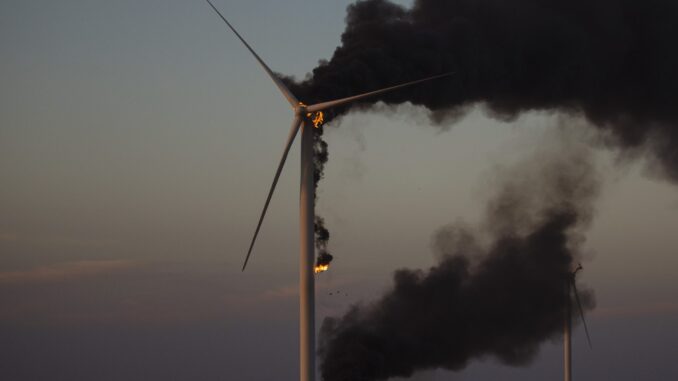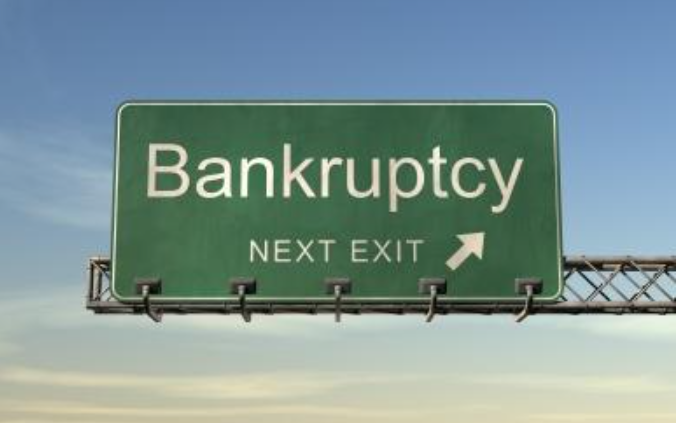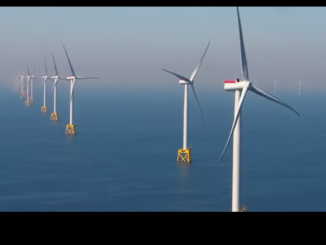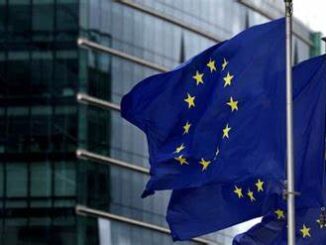
Notwithstanding €billions in subsidies, Sweden’s embattled wind industry is on the brink of total financial collapse. The majority of Swedish wind power outfits are underwater, bleeding cash and have no hope of recovery.
In the piece below, Carl Deconinck reports on the work of two economists, Christian Sandström and Christian Steinbeck, who conclude that the industry’s collapse is not only inevitable, but imminent.
Icy blast of bankruptcies loom for Swedish wind-power sector, experts warn
Brussels Signal
Carl Deconinck
1 March 2024
Two Swedish economists have issued a warning that the country’s wind-power industry is on the brink of a wave of bankruptcies.
Christian Sandström and Christian Steinbeck analysed wind-power companies’ annual reports in Sweden and their work revealed “significant financial problems”, they told Swedish media outlet Kvartal on February 28.
“The total loss for the years 2017–2022 amounted to 13.5 billion Swedish krona [€1.2 billion], which meant a loss margin of 39 per cent,” they said about the sector.
Such heavy losses seem to be the rule rather than the exception for wind-power companies in Sweden, according to the annual reports.
The Swedish Government has been pushing its national energy policies in a “green” direction, promoting wind power and decommissioning nuclear power plants. But the cost appears to be much more painful than previously thought, the economists stressed.
Sandström and Steinbeck have been pointing towards profitability problems in the wind sector for some time “despite suppliers benefiting from Government support through electricity certificates and being exempt from covering the entire expenses associated with grid adaptation for wind energy or the depreciation of properties near installations”.
Since the economists’ initial findings, Markbygden Ett, Sweden’s largest wind-farm installation with 179 turbines, is already facing bankruptcy, stacking up hundreds of millions of krona in debt.
The firm is not alone – many other alternative-power companies in Sweden are in trouble.
Sandström and Steinbeck pointed out that the sector as a whole has not made a profit in any year since 2017.
Company losses have ranged from 19 per cent to 90 per cent of turnover between 2017 and 2022, they said.
“The losses are simply because the industry cannot produce electricity at a cost below the market price, despite extensive subsidies,” the economists noted.
“That would put any other industry out of business, [although] the rate of investment has been very high.”
Both newer and older plants in the heavily subsidised industry shed cash, while economies of scale are also a limitation. The biggest farms make the biggest losses and only moderate-sized wind farms, with between 20 and 30 turbines, are turning any profits and those are at best described as “modest”.
Costs have failed to come down despite growing experience among those operating in the sector and the researchers did not observe any correlation between time elapsed and increased electricity production from existing turbines.
“Just as sailors on sailing ships once had to pray to higher powers for wind to get somewhere, wind farms can only wait for the right amount of wind,” they added.
On top of that, just 20 per cent of wind turbines in Sweden are Swedish owned. The rest are operated by foreign enterprises. Some 13 per cent of the reviewed turbines are Chinese.
Sandström and Steinbeck said the Chinese investors made their calculations based on “wind mapping” carried out by the Swedish Energy Agency and they have doubts about the accuracy of the data.
Also hammering profits is the fact that large parts of the Swedish wind-power industry cannot transfer or save power over-generation, meaning electricity needs to be consumed instantly or not at all – making it effectively unsustainable.
A few wind farms in the South of the country have gained financial momentum in recent years but all the others are stacking up more losses.
The academics noted that the change in the Swedish energy mix – decommissioning nuclear plants in favour of wind power – was politically driven and that no robust, financial independent industry has subsequently emerged.
A peculiar paradox also haunts the sector, the economists stressed. Low levels of wind leads to high electricity prices yet it also hinders electricity delivery.
On the flip side, when the wind is more powerful, oversupply drives down prices when there is ample electricity for sale.
“It is difficult to see a way out of this dilemma,” Sandström and Steinbeck concluded.
Brussel Signal
Take the Survey at https://survey.energynewsbeat.com/
ENB Top News
ENB
Energy Dashboard
ENB Podcast
ENB Substack




